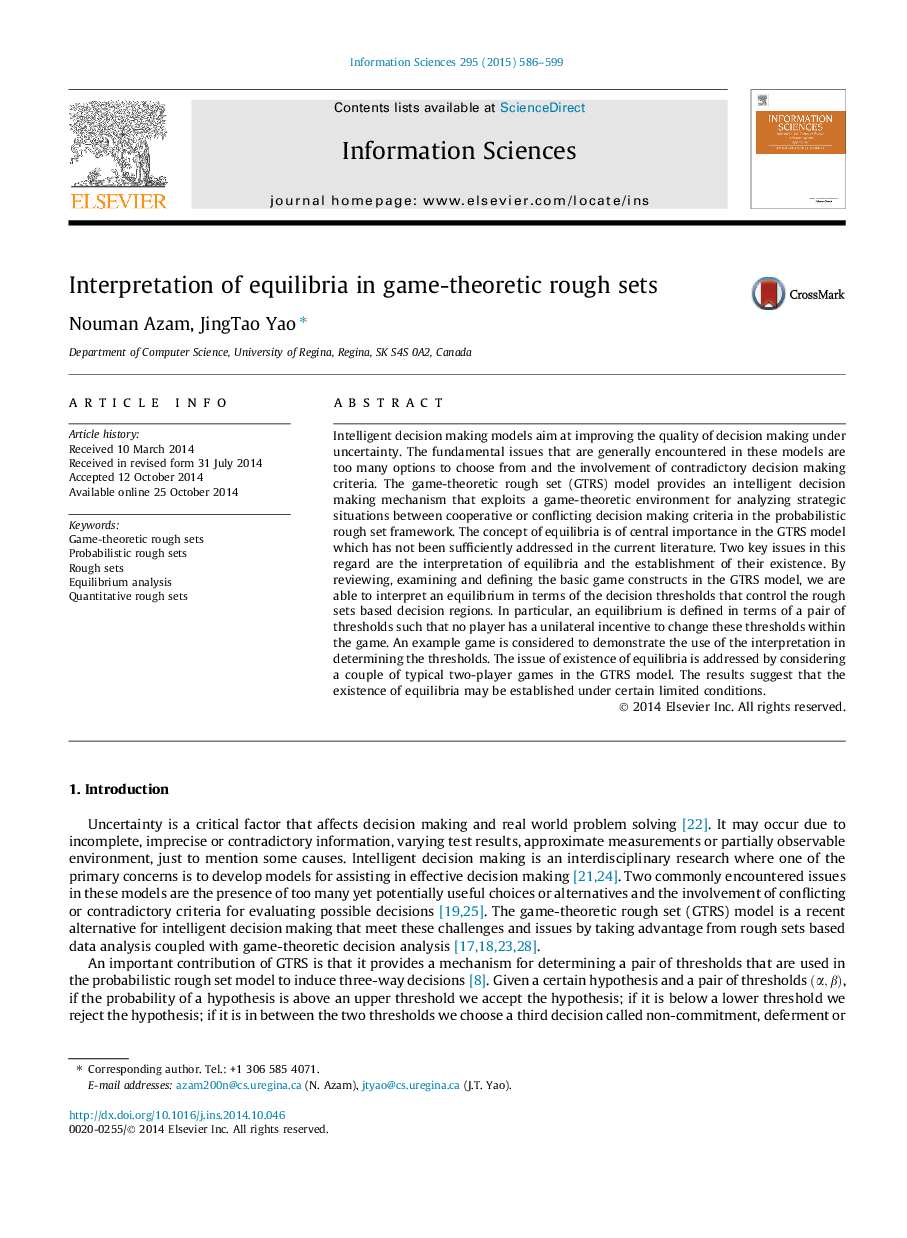| Article ID | Journal | Published Year | Pages | File Type |
|---|---|---|---|---|
| 392190 | Information Sciences | 2015 | 14 Pages |
•The GTRS provides a mechanism for determining a pair of thresholds in the probabilistic rough set model.•The equilibria play a critical role in determining thresholds in the GTRS model.•We address two equilibria related issues with the GTRS model.•The first issue is the interpretation of equilibria.•The second issue in the establishment of equilibria.
Intelligent decision making models aim at improving the quality of decision making under uncertainty. The fundamental issues that are generally encountered in these models are too many options to choose from and the involvement of contradictory decision making criteria. The game-theoretic rough set (GTRS) model provides an intelligent decision making mechanism that exploits a game-theoretic environment for analyzing strategic situations between cooperative or conflicting decision making criteria in the probabilistic rough set framework. The concept of equilibria is of central importance in the GTRS model which has not been sufficiently addressed in the current literature. Two key issues in this regard are the interpretation of equilibria and the establishment of their existence. By reviewing, examining and defining the basic game constructs in the GTRS model, we are able to interpret an equilibrium in terms of the decision thresholds that control the rough sets based decision regions. In particular, an equilibrium is defined in terms of a pair of thresholds such that no player has a unilateral incentive to change these thresholds within the game. An example game is considered to demonstrate the use of the interpretation in determining the thresholds. The issue of existence of equilibria is addressed by considering a couple of typical two-player games in the GTRS model. The results suggest that the existence of equilibria may be established under certain limited conditions.
